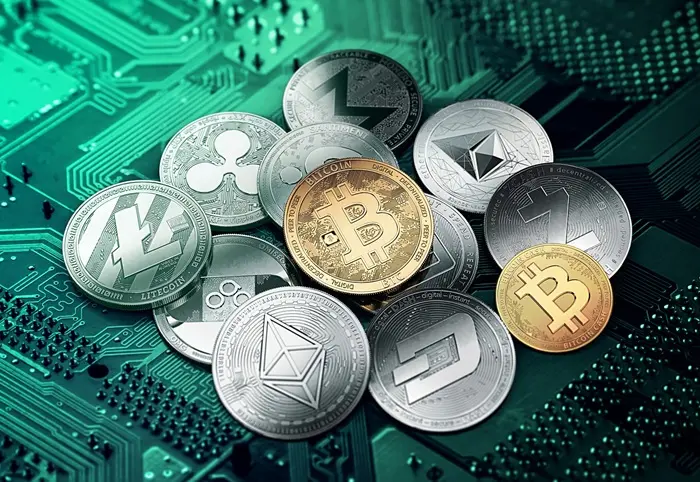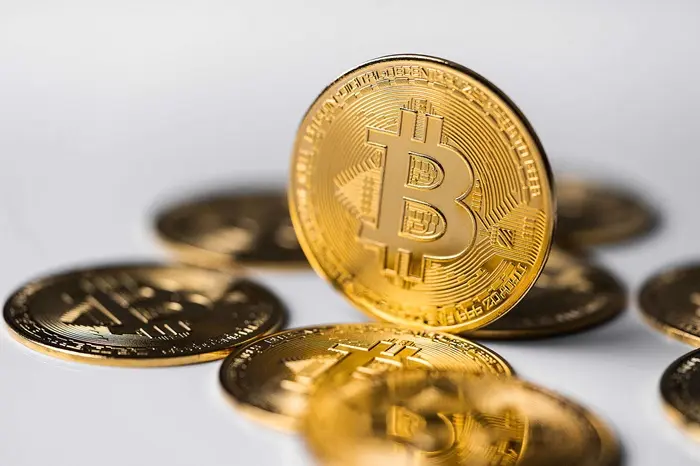The rise of digital currencies has captured global attention, with cryptocurrency becoming a prominent player in financial markets. At the heart of cryptocurrency is a technology known as blockchain. Understanding blockchain is essential for grasping how cryptocurrencies function and why they are transforming the world of finance. This article explores the concept of cryptocurrency blockchain, its role in digital transactions, and its potential to reshape industries beyond finance.
Introduction to Blockchain Technology
What is Blockchain?
Blockchain is a decentralized, distributed ledger that records transactions across multiple computers in a secure, transparent, and immutable way. The ledger is shared across a network of computers (nodes) rather than being stored in a single location. Each transaction is added as a “block” of data and linked to the previous block, forming a chain—hence the name “blockchain.” This structure makes it incredibly difficult for any party to alter or tamper with the information once it has been recorded.
Blockchain’s Role in Cryptocurrencies
Blockchain serves as the backbone of cryptocurrency. It ensures the transparency and security of transactions in digital currencies like Bitcoin, Ethereum, and others. Instead of relying on central authorities like banks or governments, blockchain enables peer-to-peer transactions directly between users. Every transaction is verified by network participants, ensuring trust and preventing fraud.
Key Features of Blockchain
Decentralization
One of the defining characteristics of blockchain is its decentralized nature. Traditional financial systems rely on a central authority (such as a bank) to process and verify transactions. In contrast, blockchain spreads control across a network of users, where each participant has a copy of the ledger. This decentralization ensures that no single entity has total control over the data, making it more resilient to failures or attacks.
Transparency and Immutability
Blockchain provides a high level of transparency because every participant in the network can view all transactions. Once data is added to the blockchain, it cannot be changed or deleted. This immutability is a key reason blockchain is so secure. In the case of cryptocurrencies, this means once a transaction is confirmed, it is permanently recorded on the blockchain and can’t be altered.
Security and Cryptography
Cryptocurrency transactions are secured through cryptography. When a transaction is made, it is encrypted and broadcast to the entire blockchain network. The network’s nodes then work to verify the transaction using complex mathematical algorithms, ensuring its legitimacy. Once verified, the transaction is added to the blockchain as a new block. This process makes blockchain transactions highly secure and resistant to tampering.
Consensus Mechanisms
Blockchain networks use various consensus mechanisms to verify transactions. The most common is Proof of Work (PoW), which requires participants (miners) to solve complex puzzles to validate transactions and add them to the blockchain. Another popular mechanism is Proof of Stake (PoS), where validators are chosen based on the number of coins they hold and are willing to “stake” as collateral. These mechanisms ensure that only legitimate transactions are added to the blockchain.
How Cryptocurrency Blockchain Works
Transaction Process on Blockchain
The process of a cryptocurrency transaction begins when a user initiates a transfer, typically using a cryptocurrency wallet. This transaction is broadcast to the entire network, where miners or validators compete to verify it. The verified transaction is grouped with other transactions into a block. The block is then added to the blockchain, creating a permanent, unchangeable record of the transaction.
Mining and Validation
In a Proof of Work blockchain like Bitcoin, mining is the process of validating transactions. Miners use powerful computers to solve complex mathematical problems, and the first one to solve it gets to add the block of transactions to the blockchain. They are rewarded with newly minted cryptocurrency for their work. In Proof of Stake systems, validators are selected based on the number of coins they hold, and they earn rewards for verifying transactions.
Anonymity and Transparency
Blockchain strikes a balance between transparency and privacy. While all transactions are visible on the blockchain, the identities of users remain pseudonymous. Each user is represented by a unique address rather than personal information, ensuring privacy. However, since all transactions are publicly recorded, anyone can trace the flow of funds between addresses, which adds a layer of transparency.
Types of Blockchain Networks
Public Blockchains
Public blockchains are open to anyone and are fully decentralized. Bitcoin and Ethereum are examples of public blockchains where anyone can participate in the network by validating transactions, mining, or creating smart contracts. These blockchains prioritize security, transparency, and decentralization.
Private Blockchains
Private blockchains are restricted and controlled by a single organization or consortium. They are often used for enterprise applications where access needs to be limited to certain parties. While they offer faster transaction times and more control, they sacrifice some of the transparency and decentralization found in public blockchains.
Consortium Blockchains
Consortium blockchains are partially decentralized, with control shared among a group of organizations rather than a single entity. This type of blockchain is commonly used in industries like finance or supply chain management, where multiple parties need access to the same information but want to maintain control over the network.
See Also: What Percentage of World Trade is in USD?
Cryptocurrencies and Blockchain Applications
Bitcoin and Blockchain
Bitcoin was the first cryptocurrency to use blockchain technology. Launched in 2009 by an anonymous entity known as Satoshi Nakamoto, Bitcoin operates on a decentralized network where transactions are verified by miners and recorded on the Bitcoin blockchain. Bitcoin’s blockchain remains one of the most secure and widely used in the world.
Ethereum and Smart Contracts
While Bitcoin is primarily a digital currency, Ethereum expands the use of blockchain by supporting smart contracts. Smart contracts are self-executing contracts with the terms of the agreement directly written into code. This allows for decentralized applications (dApps) to be built on the Ethereum blockchain, opening up new possibilities beyond financial transactions, such as decentralized finance (DeFi) and non-fungible tokens (NFTs).
Other Cryptocurrencies
Beyond Bitcoin and Ethereum, there are thousands of other cryptocurrencies, each with its own blockchain or built on top of existing blockchains. Examples include Ripple (XRP), Litecoin (LTC), and Polkadot (DOT). Many of these cryptocurrencies offer unique features or improvements over existing blockchain technologies, such as faster transaction times, lower fees, or greater scalability.
Benefits and Challenges of Blockchain in Cryptocurrency
Benefits of Blockchain
Blockchain offers several advantages for cryptocurrency transactions, including:
Security: The decentralized and cryptographic nature of blockchain makes it highly secure and resistant to hacking.
Transparency: All transactions are publicly recorded, allowing for greater transparency and trust between users.
Decentralization: Without a central authority, blockchain gives users more control over their assets and data.
Efficiency: Blockchain can process transactions quickly and cheaply, especially for cross-border payments.
Challenges and Limitations
Despite its benefits, blockchain technology faces several challenges:
Scalability: Blockchain networks, especially those like Bitcoin, can become slow and expensive as more users join the network.
Energy Consumption: Proof of Work blockchains require significant amounts of energy for mining, raising environmental concerns.
Regulatory Issues: The decentralized nature of cryptocurrencies makes them difficult to regulate, leading to legal challenges in some countries.
Adoption: While blockchain has great potential, its adoption outside of cryptocurrencies is still limited, and many industries have yet to fully embrace the technology.
The Future of Cryptocurrency Blockchain
Expanding Use Cases
Blockchain technology is rapidly expanding beyond cryptocurrencies. Industries like healthcare, supply chain management, and finance are exploring blockchain for its potential to improve efficiency, security, and transparency. In particular, decentralized finance (DeFi) is a fast-growing sector that uses blockchain to create financial products without intermediaries like banks.
Regulatory Evolution
As blockchain adoption increases, so will the need for regulation. Governments and regulatory bodies are beginning to develop frameworks to ensure that blockchain-based cryptocurrencies comply with existing laws. While some countries are embracing blockchain innovation, others remain cautious, with bans or restrictions in place.
Technological Improvements
Blockchain technology continues to evolve, with new solutions being developed to address its limitations. Innovations like layer-2 scaling solutions and the shift from Proof of Work to Proof of Stake are aimed at improving scalability, reducing energy consumption, and making blockchain networks more accessible.
Conclusion
Blockchain is a revolutionary technology that underpins the world of cryptocurrency, offering unparalleled security, transparency, and decentralization. As digital currencies like Bitcoin and Ethereum gain wider acceptance, blockchain will likely play a crucial role in shaping the future of finance. Beyond cryptocurrencies, blockchain’s potential to transform industries from healthcare to supply chains suggests that this technology is here to stay. Understanding how blockchain works and its impact on the economy is essential for anyone interested in the future of digital transactions and decentralized systems.
Related topics:



























